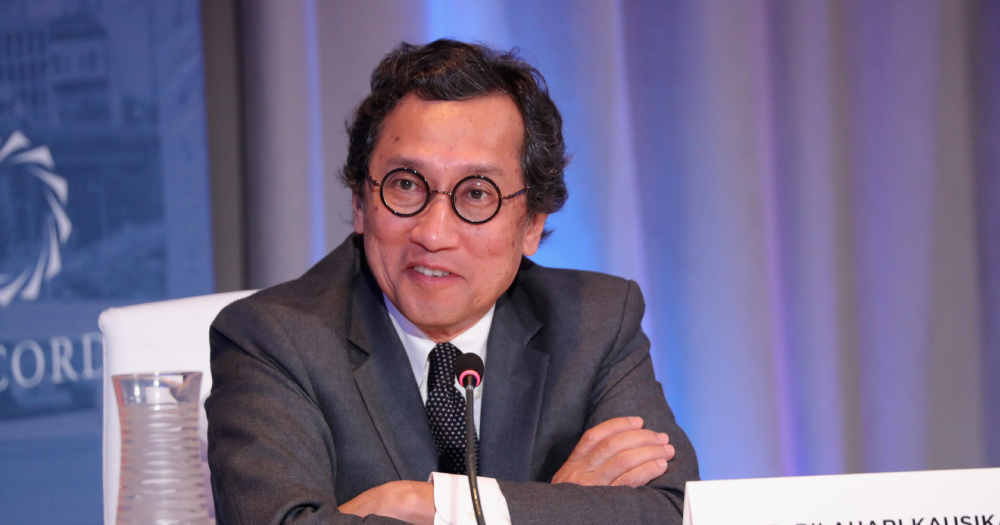What should small states like Singapore do amid growing tensions between the world's two largest powers?
Stand for its own interests, even at the risk of making the major powers unhappy, said retired diplomat Bilahari Kausikan.
What is Singapore to do?
In an interview with international current affairs publication The Diplomat, Bilahari gave his take on Singapore's role internationally as both the United States and China, currently embroiled in a trade dispute, are increasingly competing for dominance in the region.
The interview was conducted right after the annual high-profile security summit Shangri-La Dialogue held in Singapore.
The piece costs some dollars to unlock, and the badass former ambassador Bilahari made it free for all to access on his Facebook page.
Here are the key points:
Economic success is vital to small states
Singapore recognises that small city-states have "no intrinsic relevance in the international system", said Bilahari.
And so, it has to make itself relevant, and continue to work to sustain its relevance.
Bilahari said that small states will always face constraints, but rich small states have more options than poor small states.
For instance, economic success has afforded Singapore the choice of developing Changi naval base and opening its facilities to major powers.
He added that such facilities are not just opened to the U.S., but also to any naval power which finds them useful.
Diplomacy is not about pleasing others
When asked how his "small state" debate in 2017 has changed the public's understanding towards the issue, Bilahari said the Singaporean public now has a better understanding of diplomacy.
Diplomacy is not just about "being nice", but also "standing up for your own national interests", he said.
This means that even if there is a risk of making other countries unhappy, Singapore has to act to "protect and promote" its own interests if necessary.
"... if you give the impression you can be intimidated, you increase the possibility that others will try to intimidate you," he said.
Therefore, Singapore should not shy away from drawing red lines and enforcing them should the situation demands it.
"Sometimes the greatest risk is trying to avoid all risks."
Future diplomatic challenges facing Singapore
Bilahari was then asked to elaborate on the comments he wrote in his recent commentary on The Straits Times.
There is no sweet spot between the U.S. and China for Singapore to be at, and so Singapore is better off pursuing its own interests, even at the risk of making the major powers unhappy, he wrote.
Reiterating this point, Bilahari said the city-state cannot "make everybody happy all the time".
He trusts both the Americans and the Chinese understand this "reality", he added.
Bilahari also addressed the likelihood of political environment becoming more complicated and contested in the future.
He said that such a scenario "makes foreign policy more complicated", adding that Singapore should "take the world as it is and do [its] best".
"We don't give up," he said.
"It's pointless to complain that things are not as you hope."
Singapore is small, but it is independent
Lastly, Bilahari gave some advice to other small states which might be looking for some lessons from Singapore's experience.
No matter how small a country is, it is "never entirely without agency", he said.
This means that despite its physical limitations, it is still able to make its own decisions on virtue of its independence.
He also countered the famous quote "the strong do what they can and the weak suffer what they must", which dictates that weak powers have no other way than to succumb to larger powers for the latter holds superior strength.
Such a belief is "crude realism", and "crude realism is sometimes not very realistic", he opined.
So independent, sovereign states, always have agency.
But whether or not it has the wit to recognise the possibilities available, and the "will and courage" the use the possibilities, is another matter altogether, Bilahari said.
You can read the entire interview here:
Related stories:
If you like what you read, follow us on Facebook, Instagram, Twitter and Telegram to get the latest updates.
